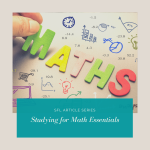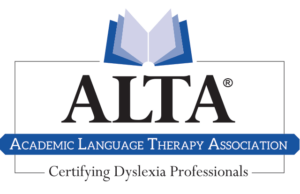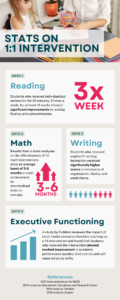No products in the cart.
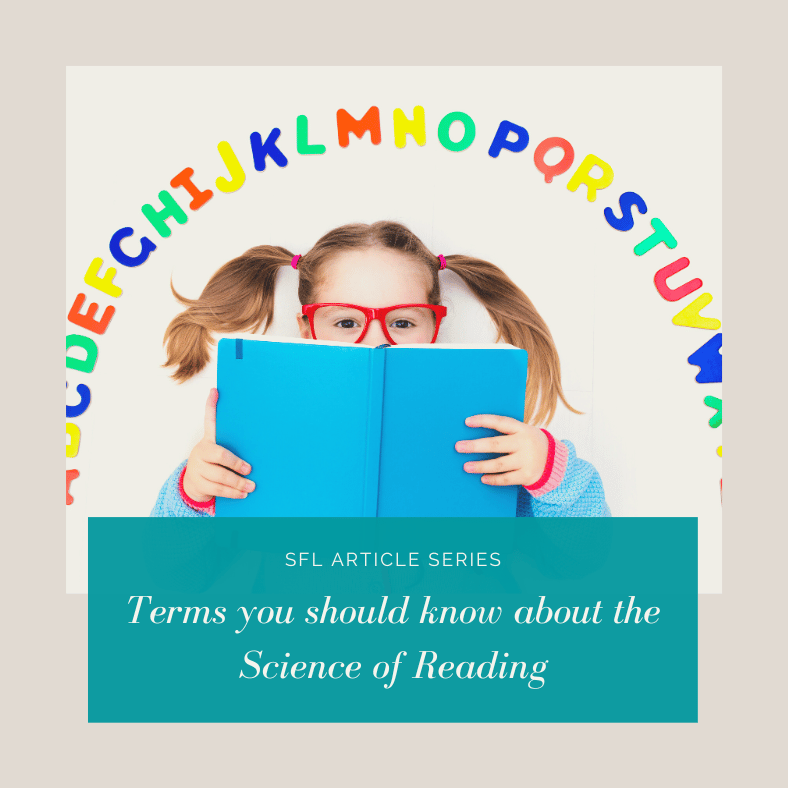
Science of Reading (SoR)
The science of reading refers to a comprehensive body of research that provides us with information about which parts of the brain are responsible for reading development, how we learn to read, what skills are involved, and how they work together. From this empirically supported research, we find that not only is structured literacy instruction the most effective approach to teaching foundational literacy skills for all students, but essential for those with reading learning disabilities.
The takeaway: The Science of Reading refers to what we know about the cognitive processes that are essential for reading proficiency. Learn more about the Science of Reading.
Structured Literacy (SL)
Structured Literacy describes a comprehensive approach to language instruction in an explicit, systematic, cumulative, and diagnostic way. Structured literacy is backed by the Science of Reading and is the most effective way to teach reading. There are a number of evidence-based approaches and programs that fall under structured literacy. Examples of structured literacy approaches and programs include but are not limited to Orton Gillingham, LETRS, Wilson Reading System, Bart Reading System, and SIPPS. These programs focus on the individual learning needs of the student. They are most commonly used in a one-on-one or small group setting with a professionally trained and/or certified instructor.
The takeaway: Structured Literacy refers to how we teach reading in a way that is backed by the Science of Reading. It is characterized by its explicit, systematic, cumulative, and diagnostic approach to reading instruction. Learn more about Structured Literacy.
Orton-Gillingham (O-G)
Orton-Gillingham is one of the most well-known structured literacy approaches and was developed in the 1930s. It closely follows research from the Science of Reading and breaks reading and spelling down into skills involving letters and sounds and builds on these skills over time. It follows all the tenants of structured literacy by its explicit, sequential, systematic, prescriptive, diagnostic, and cumulative approach. It also places an emphasis on multi-sensory instructional techniques meaning students learn by ear (listening), mouth (speaking), eyes (seeing), and hand (writing). Learn more about Orton-Gillingham.
The takeaway: Orton-Gillingham is a well-known structured literacy approach emphasizing multi-sensory instruction.
LETRS
LETRS is another research-backed structured literacy approach developed by Lexia in the 2000s. It closely follows the Science of Reading and is a comprehensive approach to foundational language instruction. Like Orton-Gillingham, it is characterized by its explicit, sequential, systematic, prescriptive, diagnostic, and cumulative approach. Similarly, it also places an emphasis on multi-sensory instruction. Learn more about LETRS.
The takeaway: LETRS is a type of structured literacy approach that is very similar to Orton-Gillingham but more contemporary.
Wilson Reading System
The Wilson Reading System is a specific type of structured literacy program informed by the Science of Reading and closely follows the Orton-Gillingham principles. Wilson is characterized by its highly structured lessons and is led by a Wilson Certified Practioner. Other well-known structured literary programs include Bart Reading System and SIPPS. Learn more about the Wilson Reading System.
The takeaway: The Wilson Reading System is a specific reading program based on the tenants of structured literacy.
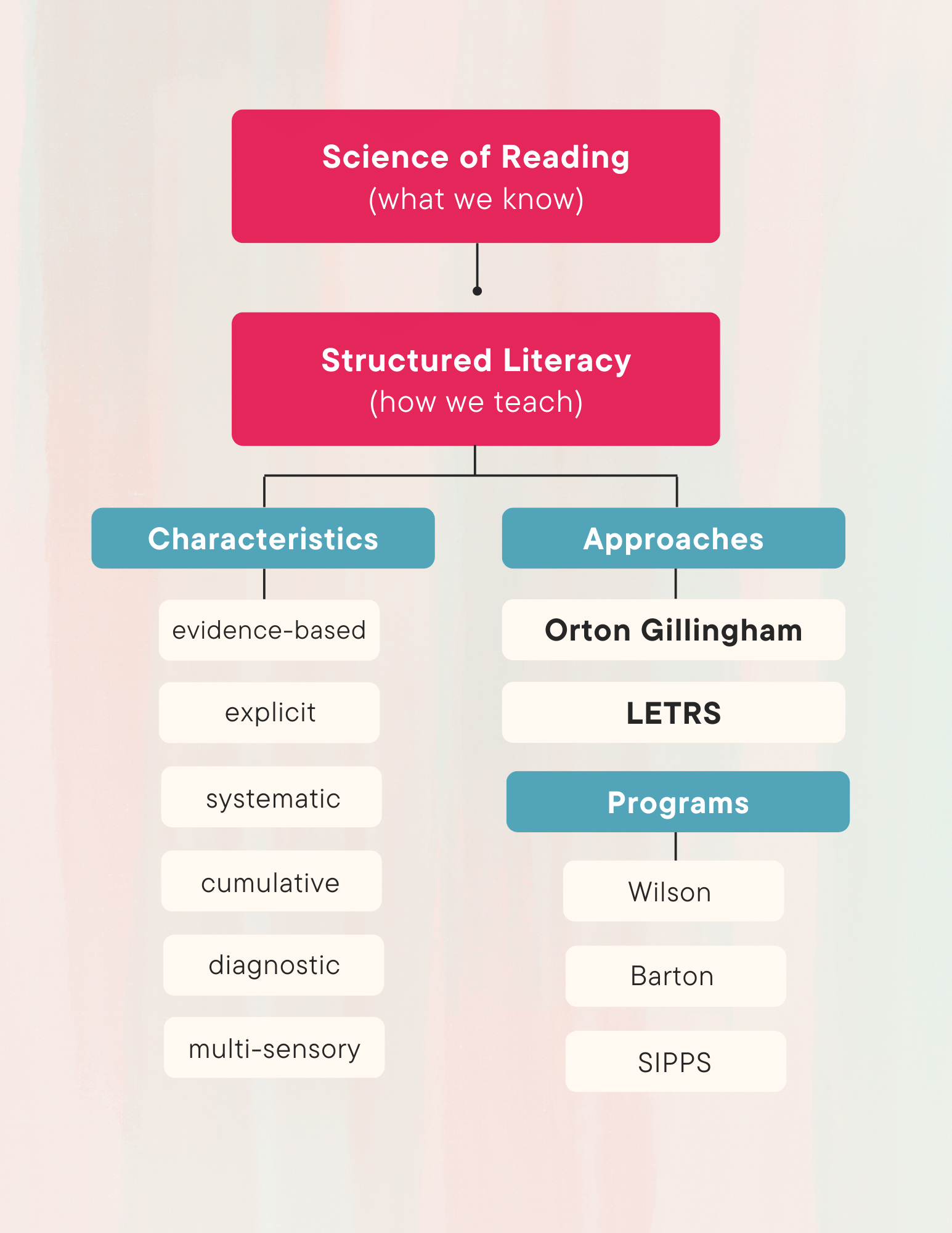
SFL Resources:
Reading Learning Disabilities and the Science of Reading Parent Workshop (video)
Will Orton-Gillingham Help My Struggling Reader? (article)
External Resources:
What is the Science of Reading (article)
Science of Reading-A New Term Validating the Orton-Gillingham Approach (article)
The Science of Reading vs. Balanced Literacy: The History of the Reading Wars (article)
Learn more about how SfL Clinicians use structured literacy to support students to become confident readers.


